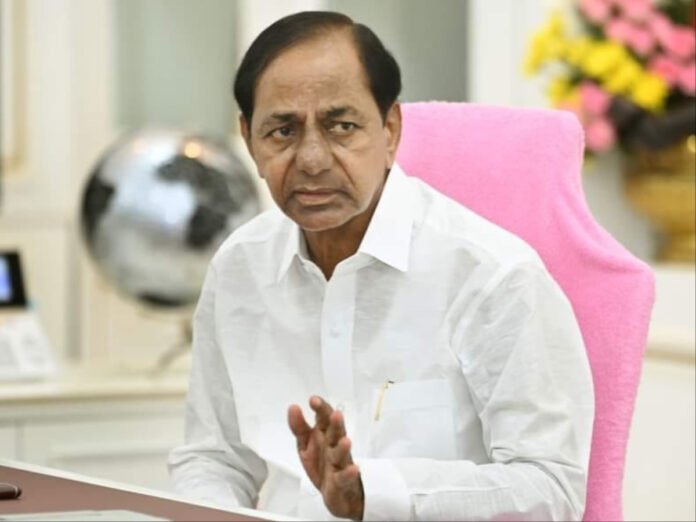The Election Commission of India (ECI) has dealt a blow to the political landscape by banning former Telangana Chief Minister K Chandrashekar Rao from campaigning for 48 hours. The decision, which comes amidst a charged electoral atmosphere, has sparked debates about electoral ethics and the role of regulatory bodies in safeguarding the democratic process.
K Chandrashekar Rao, fondly known as KCR, has been a prominent figure in Telangana politics, spearheading the Telangana Rashtra Samithi (TRS) and serving as the state’s first Chief Minister after its formation in 2014. His leadership has been instrumental in shaping the trajectory of Telangana’s development and identity, garnering both praise and criticism along the way.
The ECI’s decision to impose a ban on KCR’s campaigning stems from alleged violations of the Model Code of Conduct (MCC), a set of guidelines established to ensure fair and ethical electoral practices. The commission cited instances of KCR making inflammatory remarks during his campaign speeches, violating the principles of impartiality and respect for opponents.
The ban on KCR’s campaigning has ignited a firestorm of controversy, with political parties and analysts alike weighing in on the implications for the upcoming elections. Supporters of the TRS have decried the ECI’s decision as biased and politically motivated, accusing the commission of favoritism towards rival parties.
Conversely, critics of KCR argue that the ban is a necessary measure to uphold the integrity of the electoral process and prevent the propagation of divisive rhetoric. They point to KCR’s history of controversial statements and assert that the ECI’s action is a crucial step towards maintaining a level playing field for all candidates.
The timing of the ban, coming mere days before the state elections, adds an additional layer of complexity to an already contentious political landscape. With campaigns in full swing and tensions running high, the absence of KCR from the campaign trail could have far-reaching implications for the electoral outcome.
In response to the ban, the TRS has vowed to challenge the ECI’s decision through legal channels, signaling a potential escalation in the ongoing standoff between the party and electoral authorities. The outcome of this legal battle remains uncertain, with the possibility of further disruptions to the electoral process looming large.
Beyond the immediate ramifications for the Telangana elections, the ban on KCR raises broader questions about the efficacy of regulatory mechanisms in safeguarding democracy. Critics argue that the ECI’s powers are often limited in their ability to enforce compliance with electoral guidelines, leading to instances of abuse and misconduct by political actors.
Moreover, concerns have been raised about the politicization of regulatory bodies, with accusations of bias and partisanship undermining public trust in the electoral process. The need for greater transparency and accountability in the functioning of electoral authorities has never been more apparent, as the stakes of democratic governance continue to rise.
As the dust settles on the ECI’s decision to ban K Chandrashekar Rao from campaigning, the focus now shifts to the broader implications for the future of Indian democracy. The incident serves as a sobering reminder of the challenges inherent in ensuring free and fair elections, and the constant vigilance required to protect the integrity of the electoral process.
Ultimately, the true test of democracy lies not in the actions of individual politicians or regulatory bodies, but in the collective commitment of citizens to uphold the principles of justice, equality, and accountability. Only through a concerted effort to defend these values can India’s democracy continue to flourish and thrive in the face of adversity.

